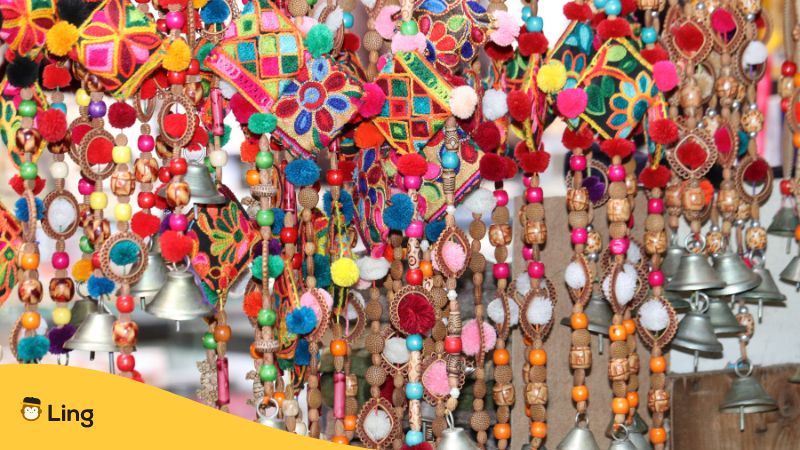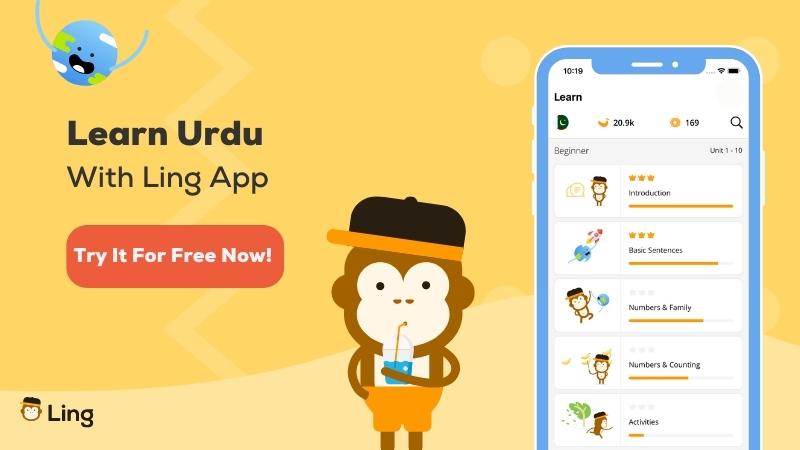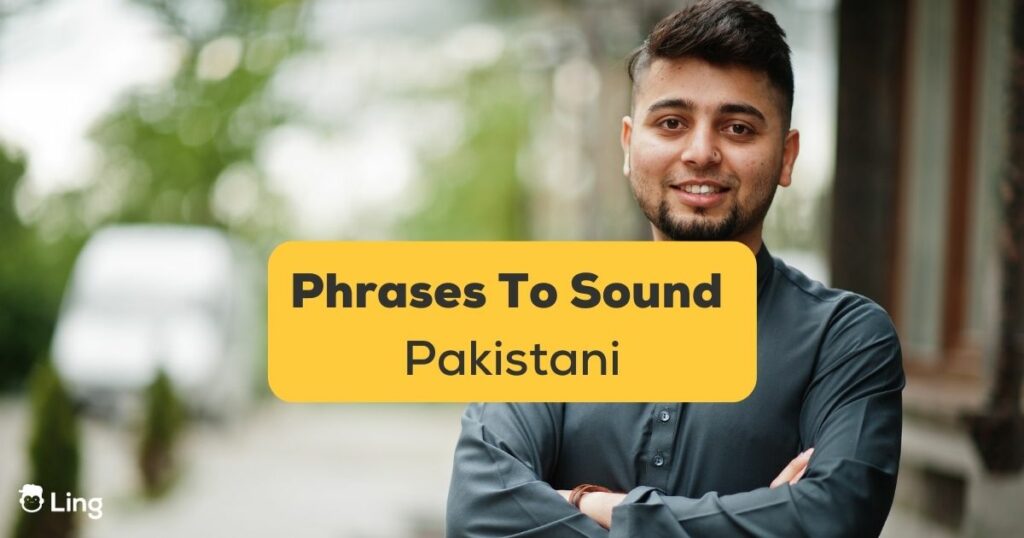Pakistan, a land of vibrant colors, rich flavors, and diverse communities, has a fascinating cultural identity that is deeply rooted in its history, traditions, and customs. From the snow-capped peaks of the Himalayas to the bustling streets of Lahore, the country is a treasure trove of languages, dialects, and expressions that reflect the unique blend of influences that have shaped its identity.
Whether you’re planning a trip to Pakistan, connecting with friends or colleagues from the country, or simply looking to expand your linguistic horizons, learning a few phrases to sound Pakistani can be a valuable asset. In this article, we’ll delve into some of the most commonly used Urdu phrases in Pakistan and help you sound more like a local and connect with the people of this beautiful country.
Phrases To Sound Pakistani

Let’s dig into the important phrases you should use while speaking Urdu. If you want to speak the (informal and formal) Urdu language as if it’s your native language, then these will come in handy.
!یار، وہ تو بوہت آلا ہے (Yaar, woh tou bohat aala hai!)
In Pakistan, the language is rich with phrases and basic words that embody the warmth and friendliness of the people. When something is impressive, locals exclaim “Yaar, woh tou bohat aala hai!” which means “it’s bombastic” and thus captures the excitement, fun, and enthusiasm that the Pakistani culture is known for.
خوش امدید (khush amdeed)
Hospitality is highly valued in Pakistan, and people often welcome guests with the phrase خوش امدید (khush amdeed), meaning welcome, which expresses their desire to make visitors feel comfortable and at ease in a new environment.
کیسے ہو؟ (Kaisay ho?)
To greet someone, locals ask کیسے ہو؟ (Kaisay ho?), meaning “how are you?”which shows their concern for the well-being of others and is often accompanied by a warm smile and a handshake, reflecting the importance of interpersonal connections in Pakistani culture.
کیا چل رہا ہے؟ (Kia chal raha hai?)
کیا چل رہا ہے؟ (Kia chal raha hai?) meaning “what’s up?” is a phrase used to start a conversation and catch up with friends and family. This reflects the sociable and friendly nature of the Pakistani people, who value relationships and connections with others.
شاباش (Shabaash)
When someone achieves something remarkable or successful, locals praise them by saying شاباش (Shabaash), meaning “good job!!!” which reflects their supportive and encouraging nature towards hard work and dedication.
ایک دم فٹ (Aik dum fit)
If a person or something is absolutely perfect or of high quality, locals use the phrase ایک دم فٹ (Aik dum fit), meaning “excellent” reflecting the high standards and expectations of the Pakistani people who appreciate excellence and perfection.
بس کرو (Bas karo)
And to maintain discipline and order, the phrase بس کرو (Bas karo), meaning “stop it”, is used to stop someone from doing something or to express disapproval, highlighting the importance of respect and courteous behavior in Pakistani culture.
اچّھا (Acha)
In the vibrant culture and official language of Pakistan, one cannot help but notice the plethora of words that express warmth, respect, and appreciation. Among these expressions, اچّھا (Acha), meaning “okay”, stands out as a versatile word that can convey satisfaction, agreement, and approval in a single breath. It is a word that embodies the simplicity and efficiency that Pakistani people are known for.
یار (Yaar)
Similarly, یار (Yaar) is a term that exudes a sense of camaraderie and companionship. It is a word that highlights the importance of relationships and human connection in Pakistani society. Like a warm embrace, یار (Yaar) is a common language that welcomes friends and acquaintances with open arms and is a testament to the hospitable nature of the Pakistani people. There’s no literal translation of this word but it could mean “mate”.
چائے (Chai)
Tea, or چائے (Chai), is a beverage that permeates every aspect of Pakistani life. It is a symbol of hospitality and a staple in the daily routine of many. With its blend of spices and milk, chai is more than just a drink; it is a comforting reminder of the simple pleasures in life.
روٹی (Roti)
روٹی (Roti) is another staple that represents the importance of food in Pakistani culture which is like a Pakistani bread. It is a simple yet satisfying bread that is served with a variety of dishes and is a testament to the resourcefulness and creativity of the Pakistani people.
بڑا اچھا (Bara acha)
“Bara acha” is a phrase that captures the spirit of excellence that runs deep in Pakistani culture. It is a phrase and national language that recognizes and celebrates hard work, talent, and exceptionalism. Pakistani people take pride in their accomplishments, and بڑا اچھا (Bara acha), meaning “too good” is the perfect way to acknowledge and appreciate the fruits of their labor.
سبحان اللہ (SubhanAllah)
سبحان اللہ (SubhanAllah), meaning “all the gratitude to Allah/God in Islam” is a phrase that expresses the deep sense of spirituality and gratitude that is woven into the fabric of Pakistani culture. It is a reminder to appreciate the beauty of the world and to recognize the divine hand that guides and blesses us.
بھائی (Bhai)
Finally, بھائی (Bhai), meaning “brother” is a term that radiates warmth and affection. It is a word that acknowledges the importance of brotherhood and fraternity in Pakistani society. Like a cherished bond, “Bhai” is a term that connects people and creates lasting relationships.
Wrapping Up

Ling is a fantastic resource for learning Urdu, the national language of Pakistan, especially if you speak English. Urdu is a beautiful language with a rich cultural history and has over 100 million speakers worldwide. Whether you are a beginner or have some basic knowledge of the language, Ling can help you improve your Urdu vocabulary and speaking skills.
With Ling, you can learn Urdu words, both basic and formal, and practice speaking with native Urdu speakers. You can also learn Persian vocabulary, which has heavily influenced the Urdu language.
Urdu is widely spoken in Pakistan, and being able to speak it can help you connect with the people of this Islamic Republic.
What are you waiting for? Download the Ling app from the Google Play Store or App Store and start learning Urdu now!
Also, check out our blog posts about daily life Urdu vocabulary, and Urdu books.



















